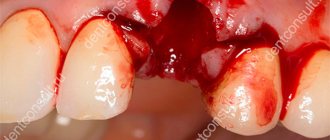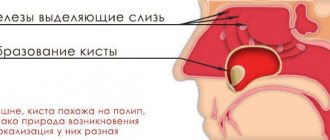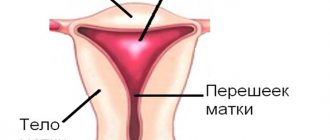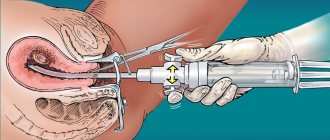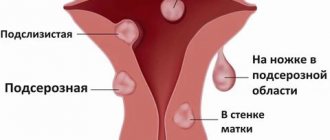Removing the uterus (or hysterectomy) is a fairly common surgical procedure. Indications for it may be different: uterine fibroids, various neoplasms and tumors (including ovarian cystomas in postmenopause), endometriosis. This volume of surgery is proposed in the case when preservation of the diseased organ is no longer possible, since it is accompanied by a high risk of complications (bleeding, malignancy, progression of the process)
Such operations began to be carried out about a hundred years ago, so experience in this area of gynecology has been accumulated quite a lot. A large number of clinical studies have also been conducted, which allow us to draw certain conclusions regarding the consequences of the operation and the quality of life of the operated patients. The modern level of gynecology and medical equipment make it possible to perform a hysterectomy using laparoscopy (in the case where the size of the uterus makes it possible), which guarantees high precision during the operation and quick recovery after it.
However, almost every woman for whom doctors recommend hysterectomy is much more concerned about the consequences of the operation. Although, quite often, you need to worry more about the pathology that is an indication for surgery.
How will life change? Will it be necessary to change something radically, to adapt to the functioning of an organism deprived of such an important organ as the uterus? How will the operation affect your sex life, and how will you now need to build your relationship with your sexual partner? Will the surgery cause changes in appearance: excess weight, rapid aging of the skin, growth of dark hair on the face and body?
If we try to answer all these questions briefly, the answer will be: “No radical changes will occur - neither in lifestyle, nor in appearance.”
And if you want a more detailed explanation, then read on.
Why do such questions arise?
A stable stereotype operates in a woman’s mind:
No uterus - no menstruation - menopause occurs. Menopause = old age.
Women are confident that removal of the uterus will entail an artificially induced unnatural restructuring of the body, which will lead to premature aging, decreased libido, and the extinction of many functions. There will be problems with health and well-being, frequent mood swings, causeless fatigue - which, in turn, will affect relationships with others, especially with loved ones. Psychological problems will be layered on top of physiological problems, and it will become difficult to achieve mutual understanding and trust in the family. The result is sad - early old age, loneliness, a sharp decrease in the quality of life, a feeling of guilt and inferiority.
In fact, this stereotype is quite easy to destroy if you understand the anatomical structure of the female body and understand the purpose of the uterus, the mechanism of menstruation and menopause. We will try to help you do this!
Questions to ask the day before your hysterectomy
- How to prepare for surgery? How many hours before should you stop eating and drinking?
- What type of surgery will I undergo? What is the expected course of the operation?
- What type of anesthesia are you planning to use? How long will I be under anesthesia if I choose general anesthesia?
- How can the chosen type of anesthesia affect my body?
- How soon can I come to my senses, eat and call my family?
- How will I feel immediately after surgery? Should I expect pain? What can I do to prevent it from hurting me?
- After what period of time can I receive a histological report?
The uterus and its functions (briefly about the main thing)
The uterus is an organ of the female body that performs certain functions (for more details, see the section “Normal anatomy of the pelvic organs”). It is intended for the development of the embryo and gestation of the fetus. During the process of childbirth, the uterus also takes a direct and very active part - it contracts, thereby facilitating the expulsion of the fetus.
Inside, the uterus is, as it were, “lined” with a mucous membrane, the endometrium. The endometrium is saturated with blood vessels, and the blood supply increases noticeably towards the middle of the menstrual cycle and in the second phase (doctors say: “the endometrium thickens”). The body needs this so that the fertilized egg is safely fixed in the uterus and begins to develop. If fertilization does not occur, then the vessels do not receive nutrition, the upper layer of the endometrium separates and is rejected by the body. Menstruation begins.
When the uterus is removed, there cannot be menstruation, because there is no endometrium, the body simply has nothing to expel. However, this condition has a completely different nature than menopause. It's called "surgical menopause."
Late rehabilitation after hysterectomy
If the operation was performed by laparoscopy, then sick leave is provided for 30 days, and for a normal uncomplicated operation - 45 days. Although there are cases where women felt good after 3 weeks and went to work.
This period begins immediately after discharge and is considered no less important than the period of early rehabilitation. You need to be no less responsible about your health and direct all efforts towards restoring the normal functioning of all organs.
During the postoperative rehabilitation period, the woman also takes medications, including enzyme, hormonal and restorative agents. While at home, you need to limit physical activity and not put stress on the muscles of the pelvic floor and abdominal cavity. If medicinal exercise has been recommended, it should not be neglected to avoid complications.
You need to abstain from sex for a month. If there is pain or suspicious discharge, you should consult a doctor. Most likely, he will prescribe additional medications and extend the period of sexual rest.
After leaving the hospital, nutrition should also not be left unattended. You need to eat only healthy foods, while limiting confectionery, alcohol, spicy, smoked and fatty foods. You need to drink as much fluid as possible, as it helps detoxify the body.
In most cases, after rehabilitation, a woman’s quality of life remains unchanged, namely:
- the menstrual cycle is restored;
- hormonal levels return to normal;
- libido remains the same;
- the opportunity to lead an active sex life returns.
Naturally, a woman loses her reproductive function, but life does not end there.
What is menopause
Menopause is the decline of ovarian function. They produce less and less sex hormones (estrogen, testosterone, progesterone), and the egg does not mature in them.
Estrogens (female sex hormones) are very important for the condition of bone tissue and blood vessels, so their absence very often leads to problems with the musculoskeletal system and blood circulation.
Decreased production of testosterone (male sex hormone) leads to a lack of sexual desire (libido). Active hormonal changes occur in the body - it is this that can lead to external changes such as excess weight, aging skin, and hair loss. Removal of the uterus cannot cause hormonal changes because the ovaries will continue to function and produce sex hormones.
Clinical studies prove that when the uterus is removed, the ovaries work in the same mode and during the same period, which is planned, “programmed” by the body genetically.
Estrogens are produced regardless of whether the uterus is removed or left, they continue to have a positive effect on bone tissue and the cardiovascular system. Testosterone is also produced, so libido does not decrease and the quality of sexual life does not change in any way.
Moreover, if you are familiar with such a condition as premenstrual syndrome (PMS), then it will persist. Because PMS is caused by the cyclical work of the ovaries.
Preservation of the uterine appendages
Preserving the appendages in their normal state ensures their physiological functioning, almost the same in duration as when preserving the uterus, which improves the quality of life of women and helps them go through the perimenopause period favorably and smoothly, without significantly affecting their well-being. If the ovaries are preserved after removal of the uterus, the ovaries cease their function approximately 2 years earlier than if the uterus had not been removed.
If the indications for removal of the uterus were complaints in the form of an increase in the abdomen in volume, heavy bleeding leading to a decrease in hemoglobin, fatigue and chronic fatigue syndrome, then the consequences of hysterectomy will manifest themselves in the form of improved quality of life, increased mood and well-being, increased strength, increased hemoglobin, eliminating chronic fatigue.
Approach to surgery
If the doctor believes that it is necessary to remove the uterus, this does not mean that the uterine appendages (ovaries and fallopian tubes) also need to be removed. The modern approach clearly suggests that the ovaries, as well as the cervix, if they are healthy, can be left.
It has also been proven that the risk of developing ovarian cancer after hysterectomy is reduced. Some sources provide the following statistics: the risk of developing ovarian cancer in women after a hysterectomy is 1/300, while in women with a preserved uterus it is 1/80.
What not to do after abdominal surgery to remove fibroids
Patients are interested in what can and cannot be done after surgery to remove uterine fibroids. Rehabilitation usually consists of the procedures and recommendations described above. The main thing is to listen to your doctor and take care of your health. The early period is considered the most important: a number of restrictions are caused by the fact that the wound has not yet healed completely and there is a risk that the stitches will come apart. For this reason, you should not overexert yourself; loads are allowed, but they must be moderate. It is recommended to take a shower instead of a bath to avoid infection.
Psychological consequences of hysterectomy
The right psychological attitude is the key to your good health, quick recovery after surgery and a return to your usual lifestyle. For a favorable psychological state, first of all, you need trust in the doctor and confidence that your body will function the same as before the operation (which is indeed true). A positive attitude and support from loved ones are very important.
Many women attach a certain symbolism to the uterus, endowing it with super-meaning. In their minds, the uterus is, as it were, identified with the feminine essence. You can read above that the actual situation is different. If you attach great importance to the opinions of others and want to protect yourself from their negative psychological impact, then you do not necessarily need to tell them (including all close relatives, except your husband) about the details of the operation. This is the case when “a lie is for salvation.” Remember that the most important thing in this case is your health. Both physical and psychological.
When can you resume sexual activity?
You can have sex only after the tissue has completely healed. Resuming intimate relationships too early can result in sutures coming apart, bleeding, wound infection, and prolapse of the vaginal walls.
During the first contacts, it is better for the woman to be on top to control the depth of penetration and avoid pain. Subsequently, you can return to your usual positions.
After surgery, you may experience lower back pain during sexual intercourse. This is due to damage to the uterosacral ligament, which needs repair. If during or after intimacy a woman experiences severe pain, bleeding, or discharge with an unpleasant odor, she should consult a doctor.
Sex life after hysterectomy
For 1-1.5 months, sexual intercourse after removal of the uterus (as after other operations) is prohibited. This is primarily due to the necessary time required for the wound to heal.
When your body recovers and you realize that you can lead your normal life again, there will be no obstacles to sexual communication. Sensitive areas that bring a woman pleasure during sexual intercourse are located not in the uterus, but in the vagina and external genitalia.
Of course, the degree of trust in your relationship with your sexual partner plays a very important role here. It is quite possible that he will feel constrained and insecure, will try to adapt to your new state, be afraid of sudden movements and experience banal fear. At the same time, his feelings will be determined exclusively by yours. He will perceive everything adequately if you have a positive attitude towards the situation.
Remember that your partner also needs reliable information. Feel free to discuss his questions and concerns with him. If necessary, contact a gynecologist for a joint consultation - perhaps your partner will take his words with a greater degree of confidence. He must be sure that your sexual attraction and sensations will not undergo serious changes, and you can still be a desirable and sensual woman for him. The same as you were before.
So, you just need to weigh the pros and cons. The consequences of having the uterus removed will not cause you any discomfort. The choice between your health after removal of a diseased organ and your imaginary fears about changing your appearance and lifestyle is always yours.
Suture infection
When a postoperative suture becomes infected, the overall body temperature increases to 38 degrees. The patient's condition, as a rule, does not suffer. Prescribed antibiotics, as well as antiseptic treatment of sutures, are quite sufficient to relieve this complication.
The postoperative dressing is changed for the first time and the wound is treated the next day after the operation, then the dressing is carried out the next day. It is advisable that the seams be treated with a solution of Curiosin (10 milliliters 350-500 rubles), which ensures gentle healing; It is also an excellent prevention of the formation of keloid scars.
When is a hysterectomy appropriate?
This method is one of the most common gynecological operations. But it is not always necessary. The advisability of such surgical treatment depends on the disease or injury, as well as the personal situation of the patient.
In the case of cancer, removal of the uterus and/or ovaries is usually inevitable to achieve healing. Complaints caused by fibroids and the size of the tumors sometimes also require such surgical intervention.
If you decide to have a hysterectomy, you must carefully weigh the benefits and consequences of such an operation.



